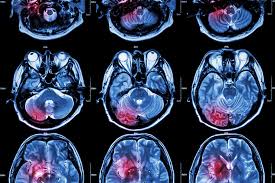 The future of treating tinnitus grows brighter every year. After gradual acceptance among audiologists, the condition is now well known and even being worked on by the major hearing aid companies. The Tinnitus Cognitive Center can help you grapple with your symptoms and improve quality of life with our advanced cognitive retraining therapy.
The future of treating tinnitus grows brighter every year. After gradual acceptance among audiologists, the condition is now well known and even being worked on by the major hearing aid companies. The Tinnitus Cognitive Center can help you grapple with your symptoms and improve quality of life with our advanced cognitive retraining therapy.
When did Tinnitus Research begin?
Tinnitus research is relatively new, making major headway in the 2000s. The Tinnitus Handicap Index, the most common diagnostic tool allowing audiologists and professionals to diagnose the condition, was developed in 1996.
Since then, MRI research found that the areas of the brain related to fear and anxiety are unusually active in tinnitus patients. Other studies eventually linked this activity to psychological effects in the 20 percent of sufferer scoring highly on the handicap index.
By 2008, cognitive retraining and behavioral conditioning were identified as a promising solution for the currently incurable disease. Our founder, Dr. Stephen Geller Katz, LCSW-R formulated a set of exercises and psychotherapies to help you get control of your life. Psychotherapies tackle negative thoughts to reduce symptoms and control the numerous side effects ranging from depression and suicidal thoughts to sleep exhaustion.
What advances are being made in Tinnitus Research?
Simply going home and dealing with the symptoms is no longer a requirement. Self-management strategies remain the most advanced approach to dealing with the predicament.
Meanwhile, tinnitus research has become a mainstay of audiology. The major hearing aid manufacturers now produce devices which target the condition. Oticon and Signia both offer options which attempt to strengthen and train the inner ear to deal with phantom noises.
Other approaches with proven results include sound therapy and even TMJ treatments. More recent advances are leading to experimental treatments include the implantation of electrodes on the brain to provide a consistent and direct current. The American Tinnitus Association recommends these options as a last resort as they are extremely invasive.
Will there ever be a Tinnitus Cure?
There is no current cure for tinnitus. Some companies promise a solution which may be years away if available at all.
Damage to the audial nerve and cilia is irreparable. While the hearing aid approach is promising, there is no definitive proof that utilizing these products acts as a cure. Instead, professionals agree that it is better to develop coping mechanisms to deal with any related negative thoughts, anxiety, and reactions.
Still, scientists in Australia have discovered the area of the auditory brainstem responsible for sound processing and the genes responsible for regulating the nerve cells. The related study found that some pathways controlling nerve signal transmission were blocked while others were overstimulated.
The future of treating tinnitus is bright with potential drugs and new treatments looming on the horizon. Cognitive retraining remains one of the leading treatments for the condition.
What is the best way to deal with Tinnitus?
A variety of alleviating mechanisms are available to help sufferers cope with pain, anxiety, and negative thoughts. The most promising treatment is a combination of specialized hearing aids and cognitive retraining. Alternative medicines have proven to have no impact and medications have significant downsides ranging from nausea and dizziness to addiction.
The Tinnitus Cognitive Center offers specialized retraining therapy to help afflicted patients return to normalcy. Contact us today to set up a consultation and discover how Tinnitus Cognitive Retraining Therapy can help you.
—————–
References
Managing Tinnitus with sound. (2018). Retrieved from https://www.oticon.com/professionals/brainhearing-technology/tinnitus
New Treatment Options for Tinnitius Sufferers. (2017). Retrieved from https://www.ata.org/news/news/new-treatment-options-tinnitus-sufferers
Tinnitus. (2018). Retrieved from https://www.mayoclinic.org/diseases-conditions/tinnitus/symptoms-causes/syc-20350156
